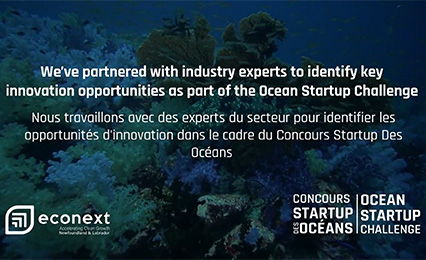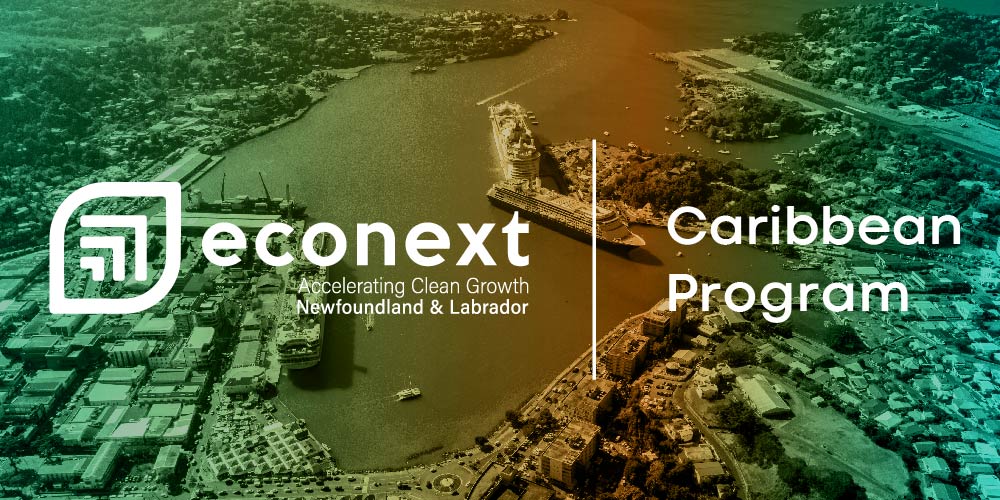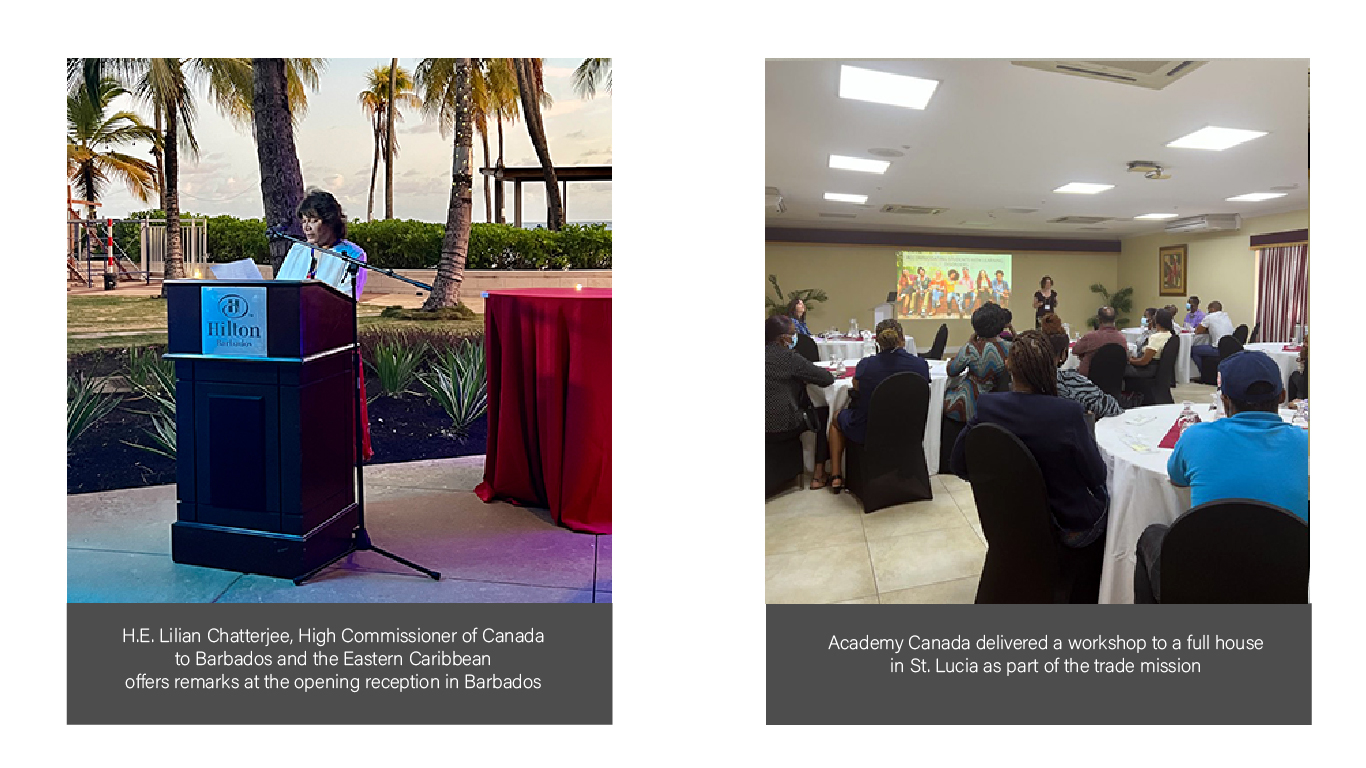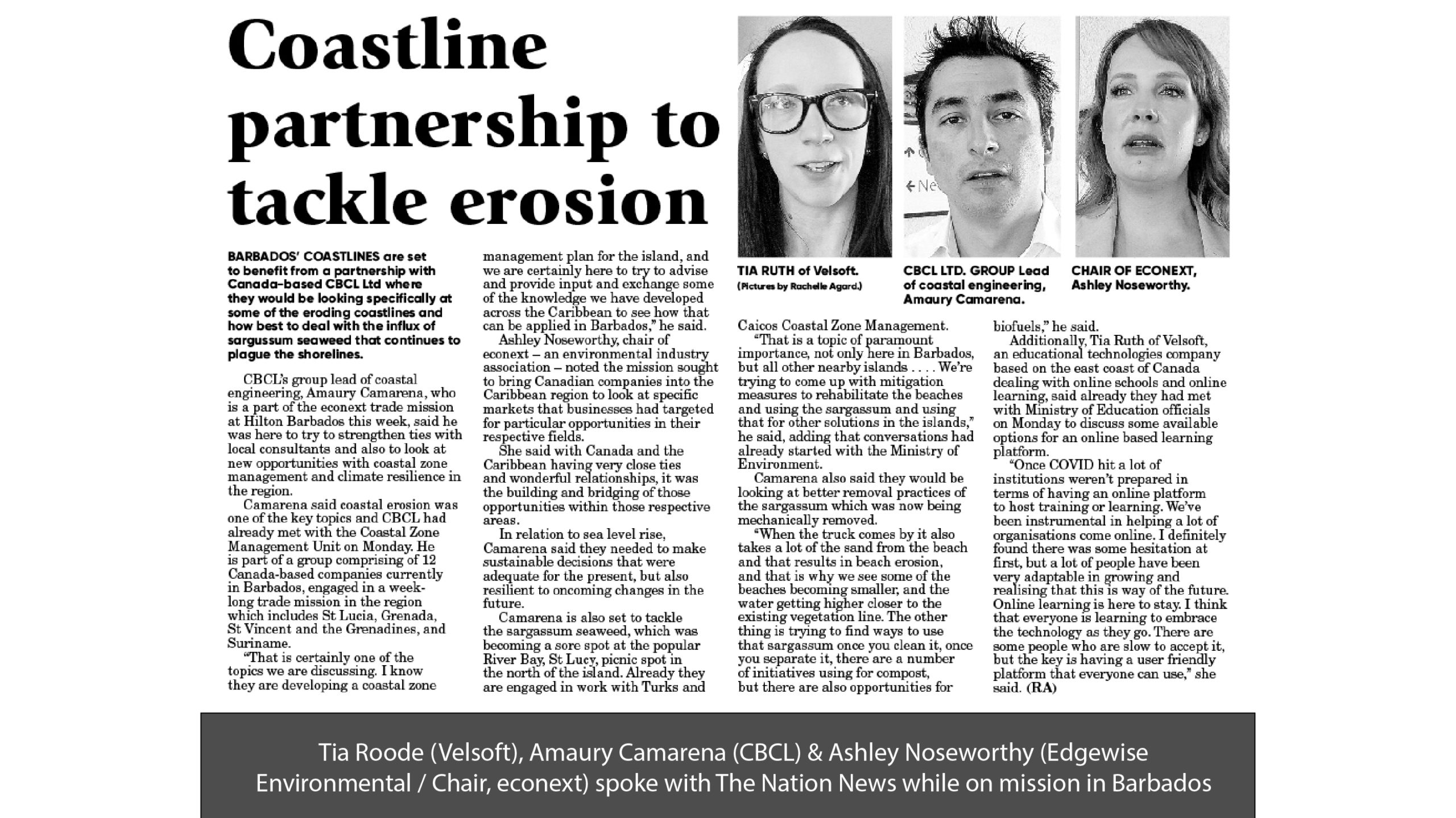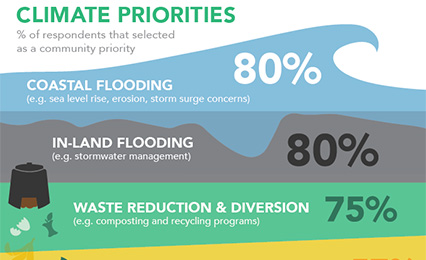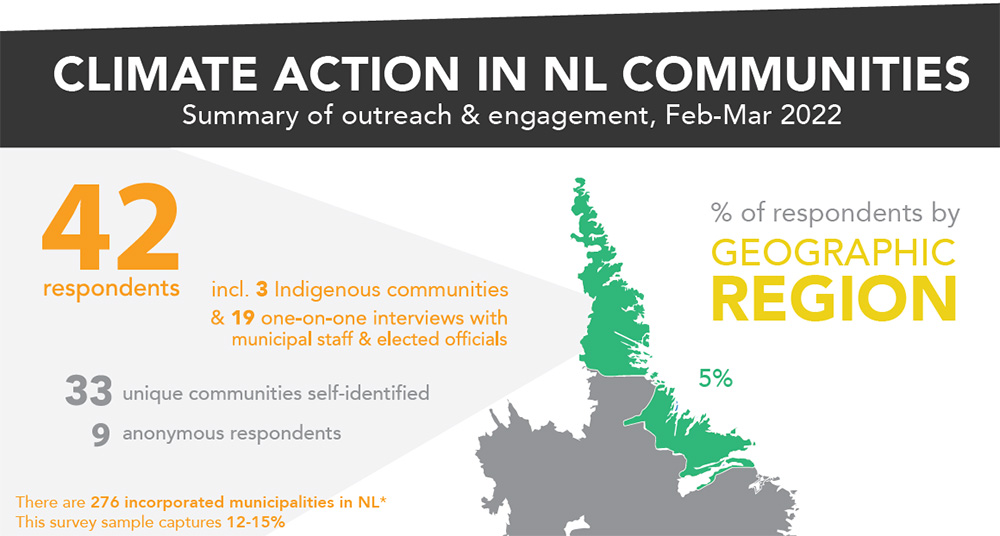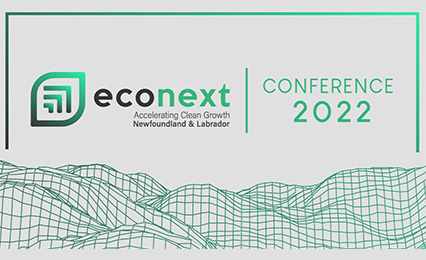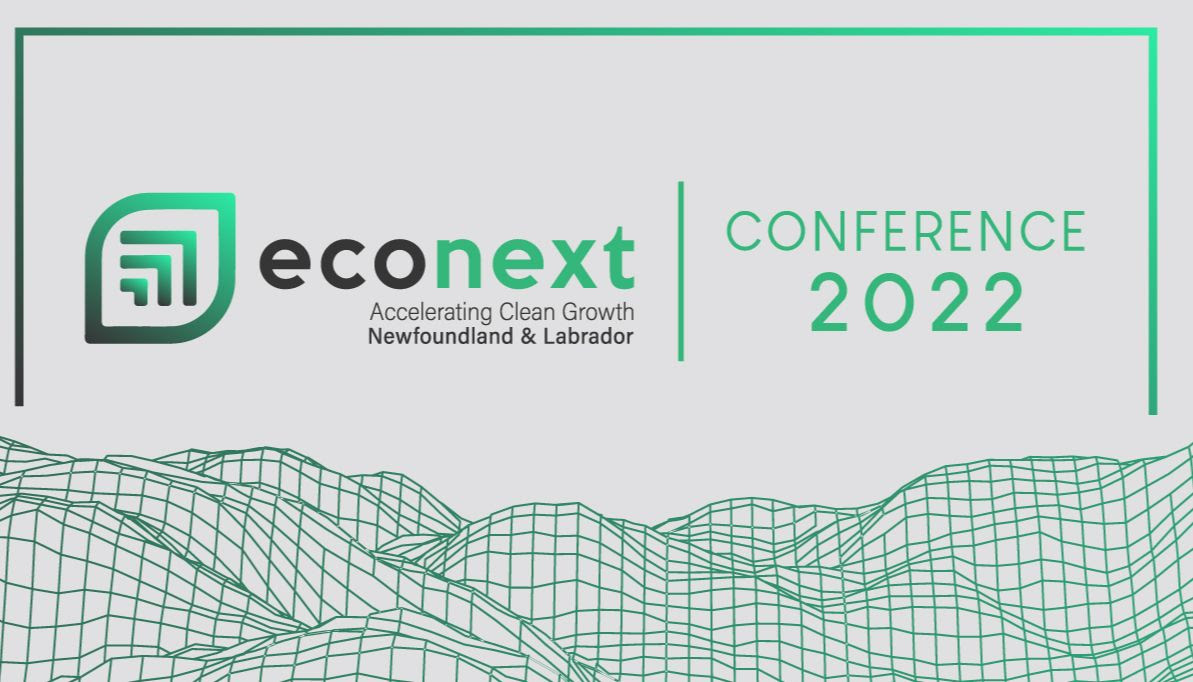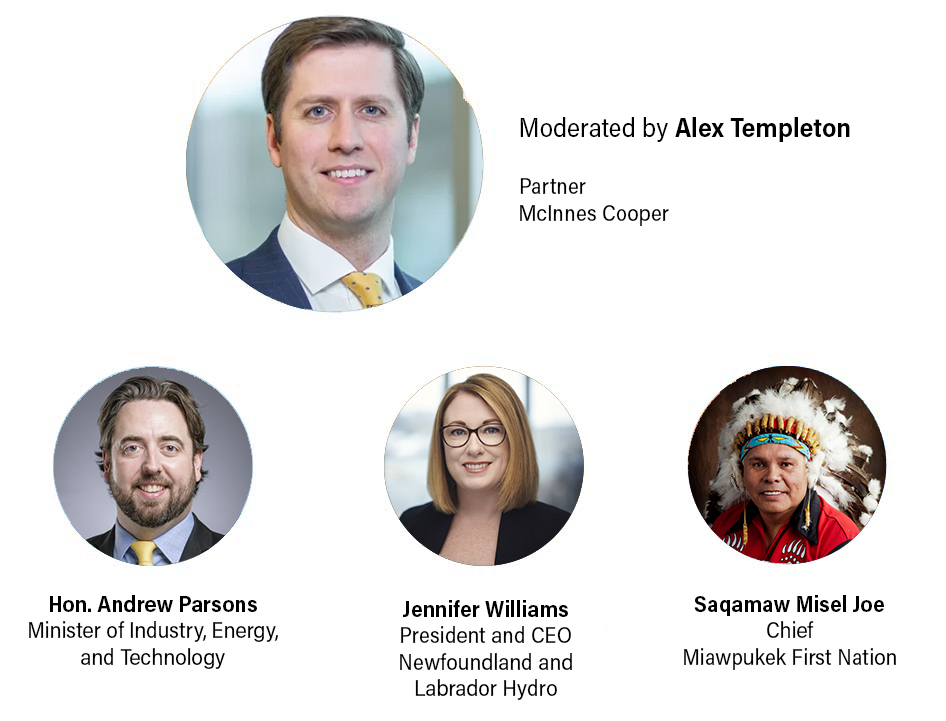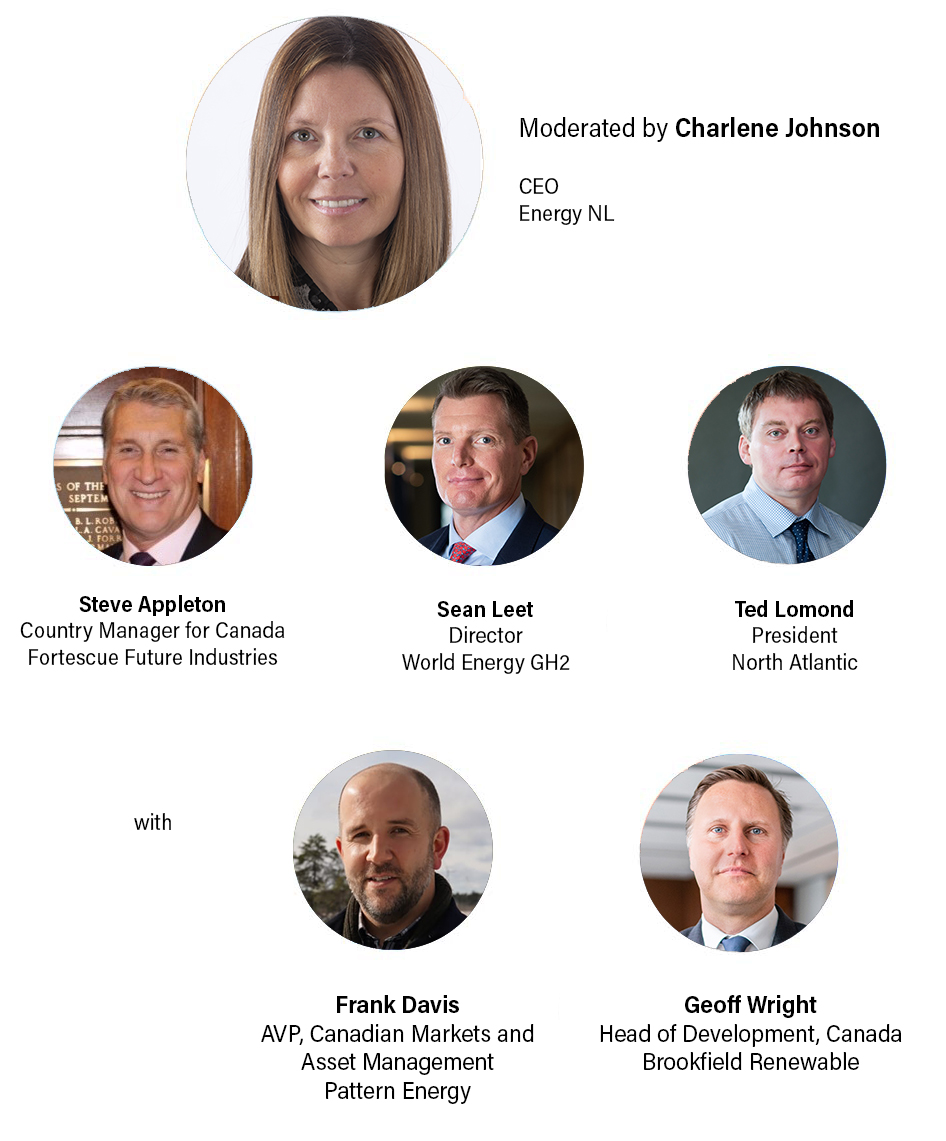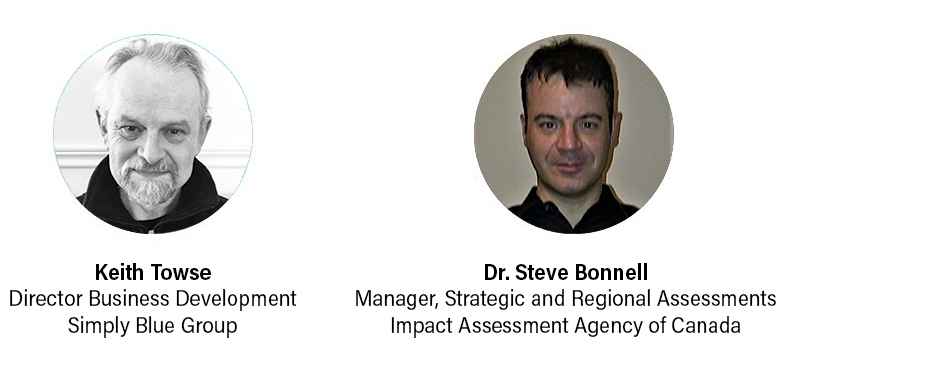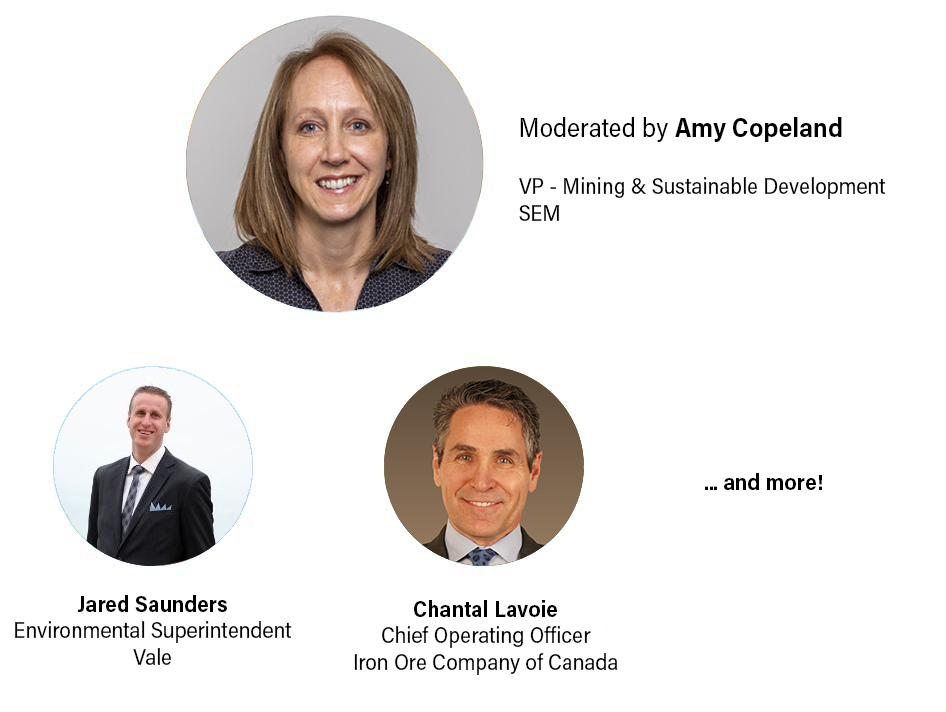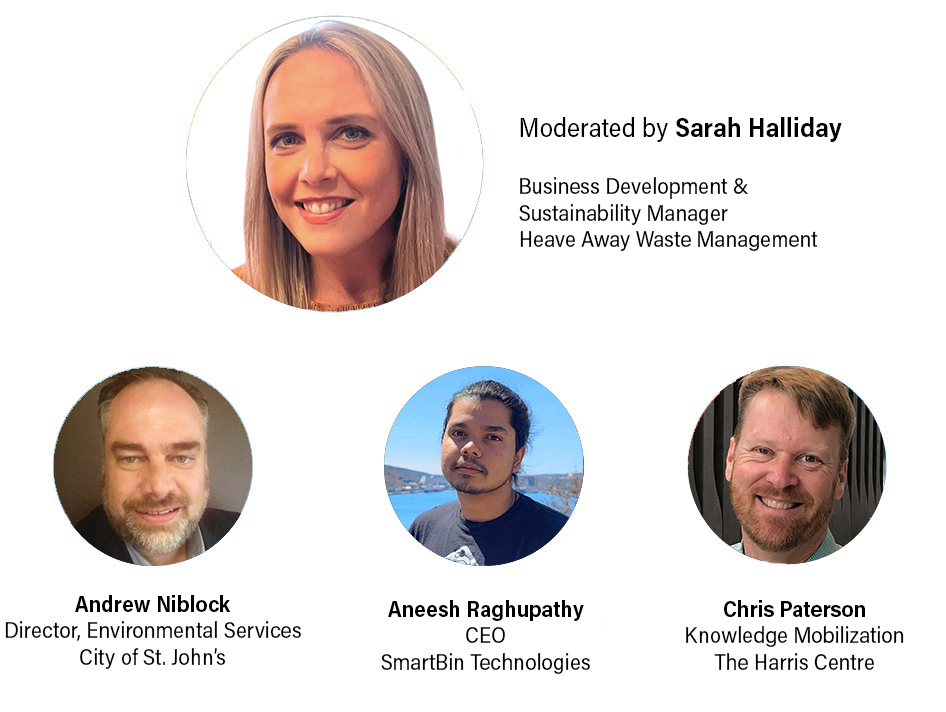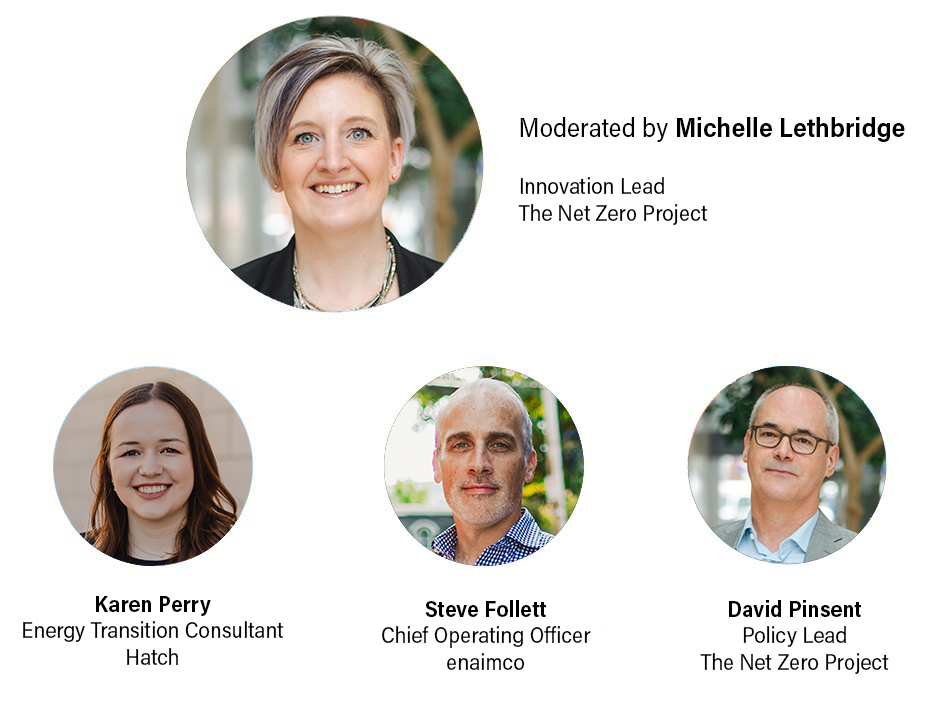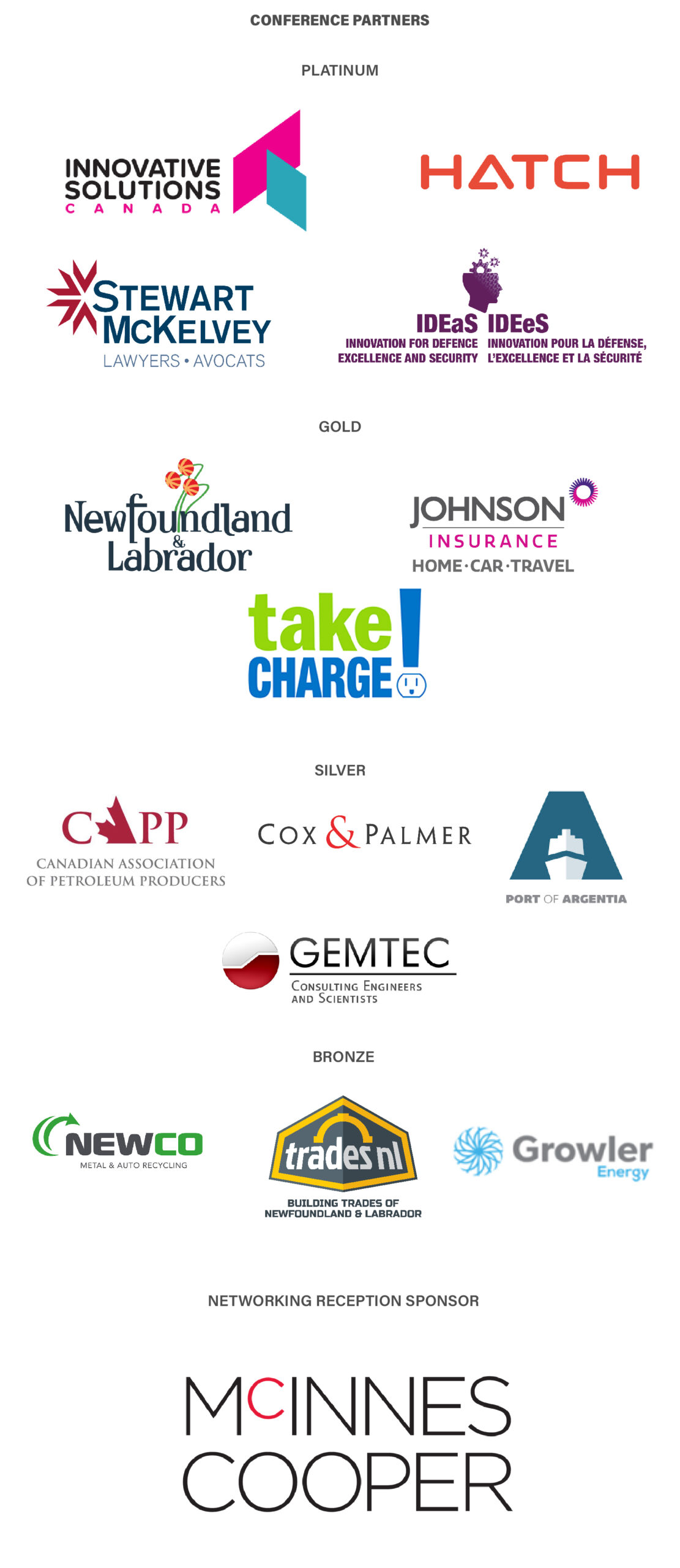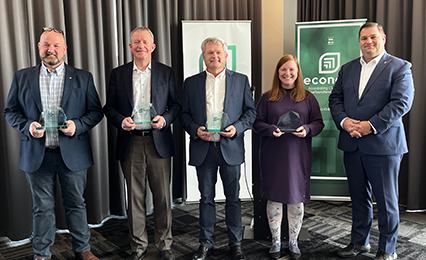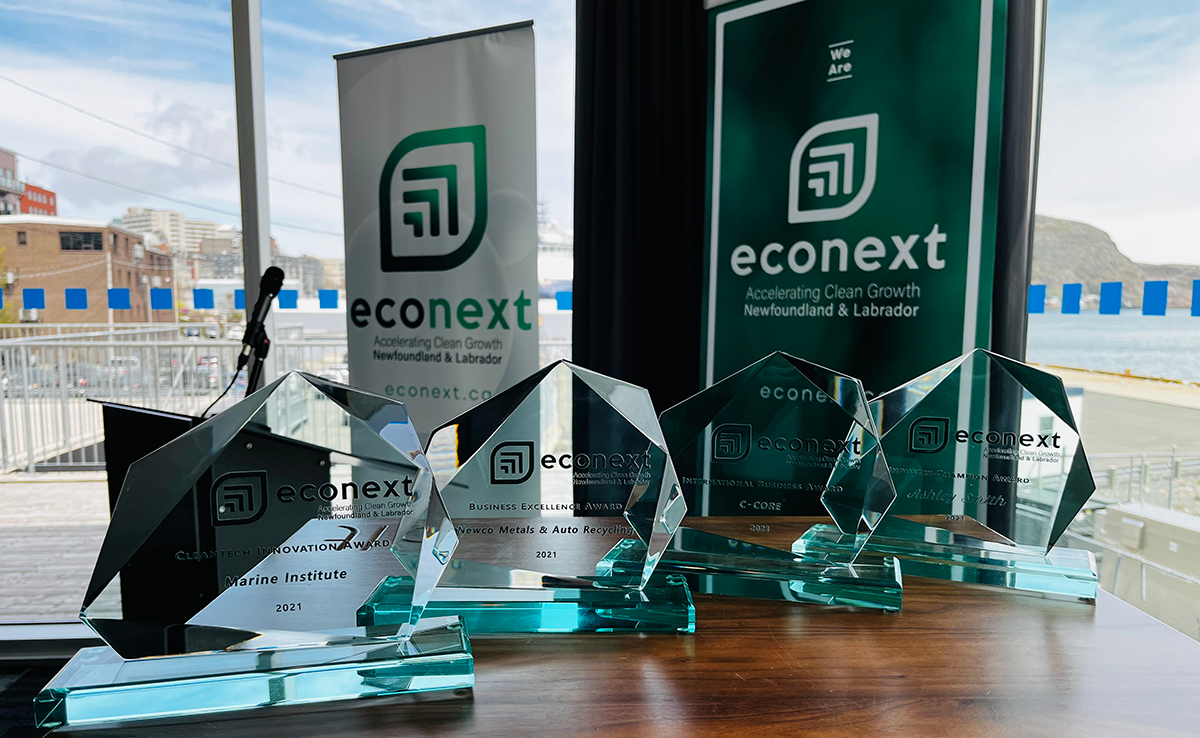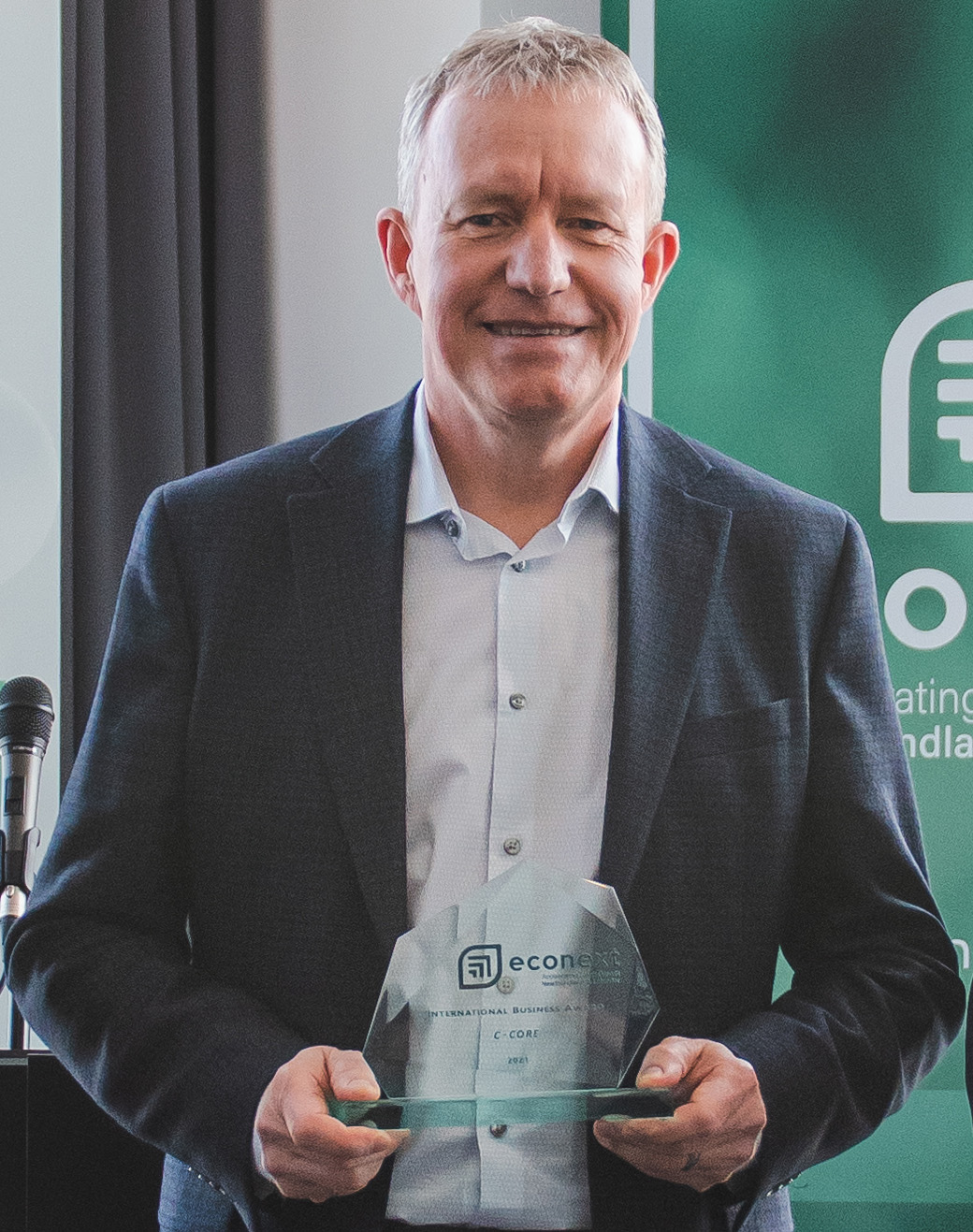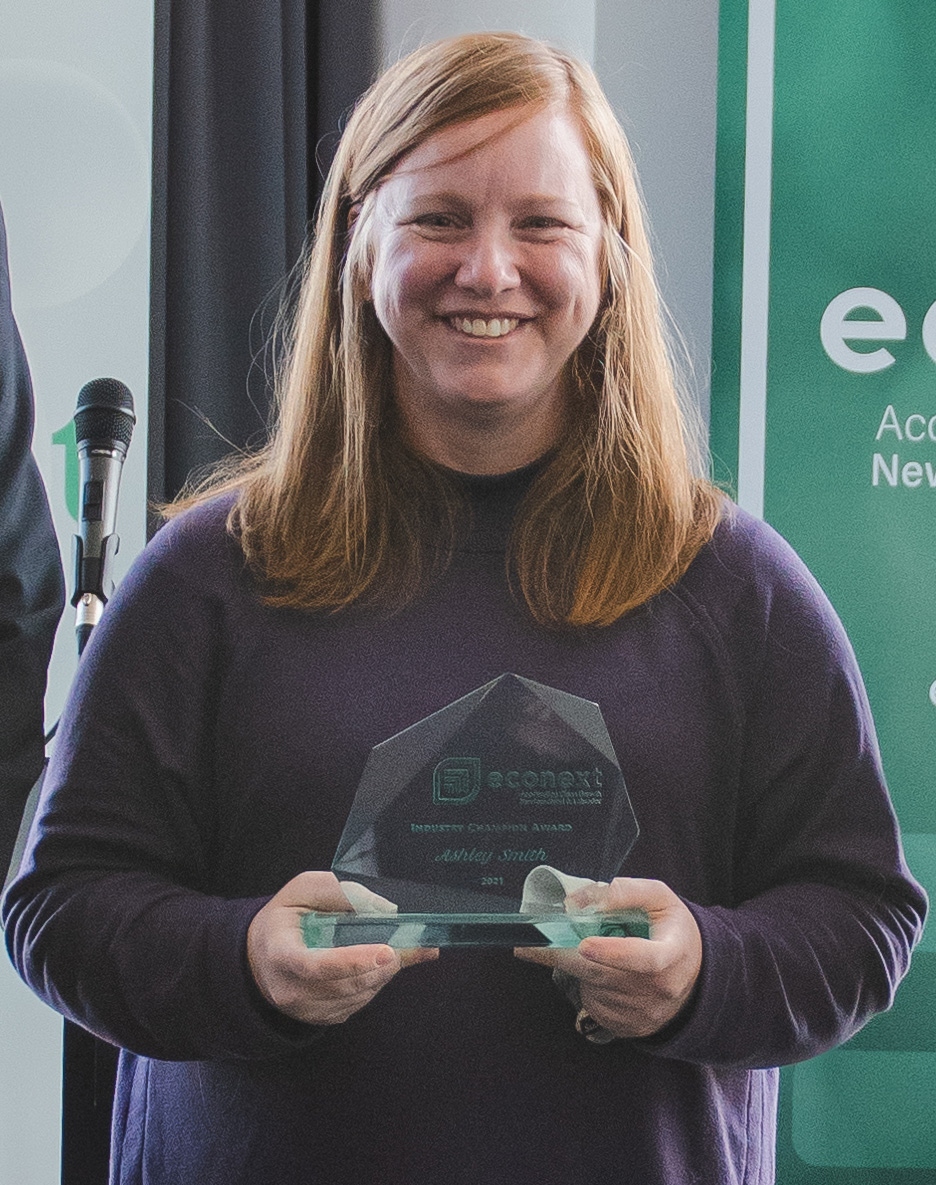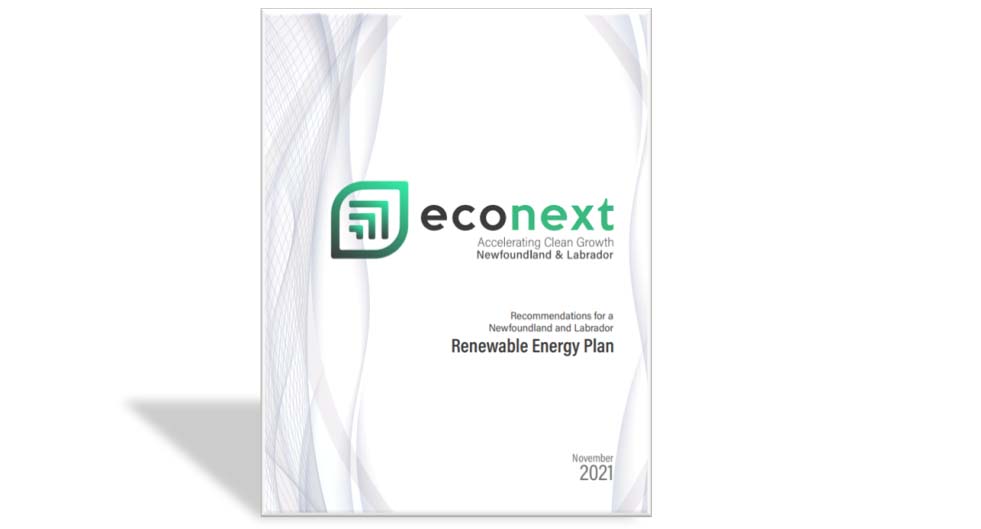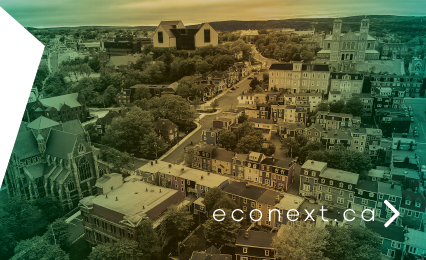
For Immediate Release
May 24, 2022
econext is celebrating the achievements of its members in balancing economy and environment today at its Industry Awards ceremony.
“The world is becoming increasingly focused on the environmental performance of economies, industries, and communities,” said Kieran Hanley, econext‘s CEO. “Organizations and individuals are doing some world class things here in Newfoundland and Labrador that deserve to be recognized and be part of that story.”
The Honourable Bernard Davis, Minister of Environment and Climate Change, was on hand to announce the winners of econext‘s four industry awards:
- Cleantech Innovation Award – Marine Institute of Memorial University
- Business Excellence Award – Newco Metals & Auto Recycling
- International Business Award – C-CORE
- Industry Champion Award – Ashley Smith

From Left to Right: Paul Brett, Associate Vice President for Research and Strategic Partnerships, Marine Institute of Memorial University; Paul Griffin, President and CEO, C-CORE; Bob Anstey, Owner and President, Newco Metals & Auto Recycling; Ashley Smith, Owner and Managing Director, Fundamental Inc.; and Hon. Bernard Davis, Minister of Environment and Climate Change.
Information on the awards and all of the winners is found in the backgrounder below.
“Congratulations to our deserving award winners, each of whom is helping to drive clean growth in Newfoundland and Labrador.”
econext is an association of businesses that accelerates clean growth in Newfoundland and Labrador and works on behalf of over 200 members to foster environmentally sustainable economic development. More information can be found at https://econext.ca.
— 30 —
Media Contact:
Kieran Hanley
CEO
kieran@econext.ca
Backgrounder
Cleantech Innovation Award
econext’s Cleantech Innovation Award recognizes innovation at any stage of development in business and academia – from research and development, to commercialization, to refinement – of products, services, or processes that can mitigate effects to, protect, or enhance the environment. The award is judged according to the uniqueness of the innovation, the potential for positive environmental impact, and the potential for commercial application.

Mr. Paul Brett, Associate Vice President for Research and Strategic Partnerships – Marine Institute

The winner of this year’s Cleantech Innovation Award is the Marine Institute of Memorial University. It has been a landmark year for the Marine Institute as it continues to help drive ocean innovation in Canada – from right here in Newfoundland and Labrador. The Marine Institute launched its new Ocean Innovation Hub, “The Launch” in Holyrood in November. The Launch provides the Canadian ocean research community with the capability and capacity to capitalize on the dynamic and often scalable environment required to deliver leading-edge research in applied ocean science and technology. Designed to support a comprehensive approach to ocean research, The Launch provides access to vessels, technology, technical expertise and collaborative partnerships, creating an ideal environment to further Canada’s Blue Economy Strategy. The Launch will factor prominently in the recently announced establishment of a Subsea Centre of Excellence at the Marine Institute that will attract industry and support organizations by providing equipment and support for environmental and safety training. The Marine Institute also signed a Memorandum of Understanding with the Norwegian University of Science and Technology (NTNU). The objective is for the research institutions to work together in applying new marine technologies for remote operations and autonomous vehicles. Any one of these accomplishments would be substantive in and of themselves. However, collectively they represent a giant leap forward to establish Newfoundland and Labrador, a global leader in innovation in environmental sensing, characterization, monitoring, and remote operations.
Business Excellence Award
econext‘s Business Excellence Award recognizes a significant initiative or achievement of a business engaged in Newfoundland and Labrador’s green economy. Initiatives or achievements could include the completion of specific business projects that have a positive environmental impact, business growth milestones (e.g., new sales, workforce expansion), or a contribution to the community from a sustainability or corporate social responsibility perspective. The award is judged according to the initiative or achievement’s impact as it relates to economic growth and development, positive environmental effects, and public awareness of green economy and environmental challenges or opportunities.

Mr. Bob Anstey, Owner and President – Newco Metals & Auto Recycling

The winner of this year’s Business Excellence Award is Newco Metals and Auto Recycling. Newco provides a world class service for the metal recycling needs of Newfoundland and Labrador and has been on a rapid growth trajectory in recent years. In 2019 the company decided to take a significant step forward to build a state-of-the-art metal shredder. This expansion has enabled Newco to do full separation of crushed cars and tin metal from provincial waste management sites. Before this investment, much of the material received would need to be shipped to larger markets for further processing. But these new capabilities now allow for sophisticated and automated separation on-site, new secondary processing activities, and the harvesting of value-added products that can be directly exported to markets around the world. Just ten years ago Newco had one facility. Now the company has ten operating metal recycling facilities in Newfoundland and Labrador with another under construction. In this time the company has grown from employing 25 to now providing 100 good green jobs coast to coast. Newco’s success in business has also come with substantive environmental benefits for Newfoundland and Labrador. Over 1,400 tractor trailer loads of crushed metal that would be shipped elsewhere for further processing are now processed right here in this province, resulting in a significant reduction of greenhouse gas emissions. Meanwhile, its shredder facility and site set a new standard for environmental protection and performance. For example, all rain and water at the site goes through: an oil, water, metal interceptor; a sediment chamber; and a subsurface holding tank to ensure the water coming off the property is clean. This process exceeds California environmental standards. These accomplishments are achievements in business excellence that deserve to be recognized.
International Business Award
econext’s International Business Award recognizes a significant initiative or achievement of a Newfoundland and Labrador organization engaged in international business activities relating to cleantech or environmental services. Initiatives or achievements could include export success, diversification into new sectors or markets, collaborative research and development, or the establishment of international partners be it through joint-venture, licensing, etc. The award is judged according to the relative impact of the internationalization activity for the individual business and/or the industry at-large.

Mr. Paul Griffin, President and CEO – C-CORE

The winner of this year’s International Business Award is C-CORE. C-CORE is an internationally recognized institution in earth observation, remote sensing, and oceans and energy innovation. This past year C-CORE signed a new contract with GHGSat – a global leader in high-resolution remote sensing of greenhouse gasses from space. C-CORE owns and operates two ground stations – one in the arctic (Inuvik) and the other in Northeast Canada (Happy-Valley Goose Bay). The partnership will see C-CORE continue to provide access to this infrastructure to GHGSat’s remote sensing satellites, a technology that is capable of detecting and measuring methane missions at the facility and community level. This leading edge technology is providing unique emissions data and intelligence to business, governments, regulators, and investors worldwide at a time when the quantification of greenhouse gasses has never been more important as the world continues its fight against climate change. C-CORE is a direct contributor to the growth and success of this technology. The unique partnership that C-CORE has developed with GHGSat is an excellent example of how Newfoundland and Labrador innovators can leverage their assets to access and engage on an international scale. The global attention that C-CORE will receive for its involvement in this enterprise will reflect well on Canada, and further cement Newfoundland and Labrador as a centre of excellence in the development and application of environmental sensing, characterization, and monitoring technologies.
Industry Champion Award
econext’s Industry Champion Award recognizes the contribution of an individual (such as an environmental practitioner, business owner, decision-maker, etc.) to the growth of Newfoundland and Labrador’s environmental industry. Contributions can be considered from a practitioner, economic development, or regulatory perspective. Champions can be recognized for singular contributions or the culmination of their activities over a period of time. The award is judged according to the contribution (over and above commercial success), its associated positive environmental effects, and its lasting impact on the industry.

Ashley Smith
The winner of this year’s Industry Champion Award is Ashley Smith. Ashley is the Owner and Managing Director of Fundamental Inc, a company that she founded to pursue action on climate change in whichever capacities possible, with social wellbeing always at the core. For those who know Ashley, they know that she works tirelessly to pursue climate action in Newfoundland and Labrador. Ashley has played a significant role in shifting the dialogue across communities in the province when it comes to climate change action and its social and economic co-benefits. She has fostered working relationships with municipalities, businesses, researchers, and academics that through her leadership have come together on a number of climate action projects. Her impact has been substantive, focusing on a broad range of topics from renewable energy installations, to building retrofits, to asset management, to food security, waste management, and sustainable, affordable housing. Over the last 5 years, her efforts have resulted in significant local investments (including over $1 million in federal funding) in climate action planning, greenhouse gas emission reduction projects, and climate adaptation initiatives across over 25 municipalities in Newfoundland and Labrador. She has worked with municipalities like Baie Verte, Bauline, Channel-Part Aux Basques, Paradise, Stephenville, and Torbay to quantify their greenhouse gas emissions and develop community-specific GHG reduction plans for each of them. While these are exemplary professional accomplishments for her and her team at Fundamental Inc, Ashley continues the fight against climate change in her free time. Currently she is volunteering her time and expertise to help to lead a community composting, greenhousing, and food security initiative in her hometown of Harbour Main. The projects Ashley has led in just a few short years have reduced energy consumption, saved greenhouse gas emissions, improved community resilience, and increased awareness and understanding of climate change across Newfoundland and Labrador. Ashley has shown that doing the right thing can not only create jobs, but meaningful, satisfying jobs – and has become an environmental industry champion in the process.





